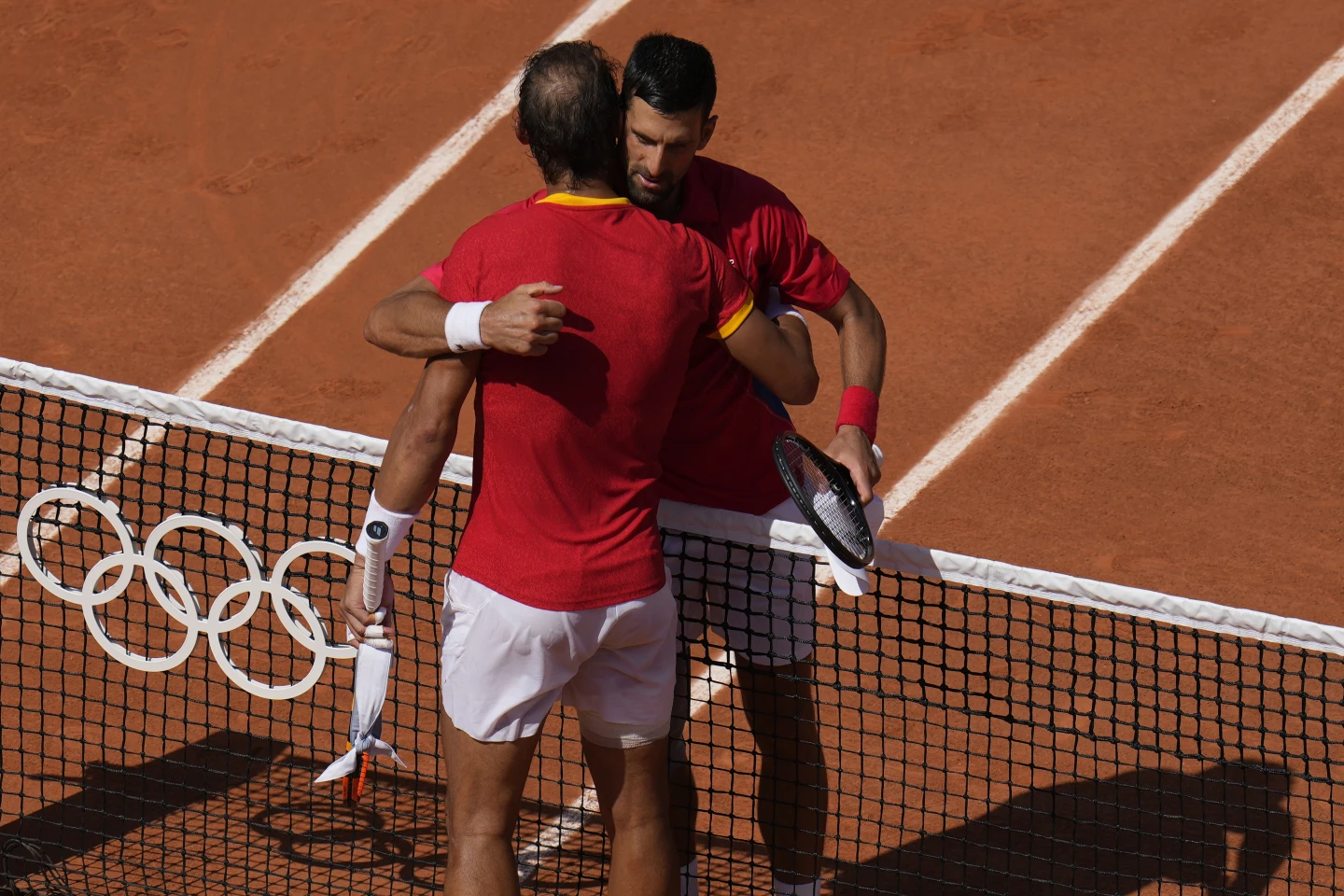Novak Djokovic, who won, and Rafael Nadal, who lost, met at the net and shared a hug after their match at the Paris Olympics, marking the 60th — and possibly final — encounter in their record-setting and often thrilling rivalry. They have great respect for each other, even if they aren’t close friends.
Djokovic’s 6-1, 6-4 win came in just the second round of the Summer Games, rather than in a Grand Slam final as in their previous nine meetings. The match wasn’t particularly exciting except for a brief 20-minute stretch in the second set when Nadal made a last effort to make it competitive after losing 10 of the first 11 games.
After the match, neither Nadal, who is 38, nor Djokovic, who is 37, was ready to say they won’t face each other again, even though it seems likely.
Nadal may be nearing retirement; he’s had two injury-plagued seasons, needed hip surgery about a year ago, and hinted in 2023 that 2024 might be his final year.
However, Nadal is still active at the Olympics, playing doubles with Carlos Alcaraz for Spain. He expressed frustration about being asked daily about his future.
“I cannot live every single day with the feeling that it’s going to be, or not going to be, my last match. I come here, I try my best, I play. And when I decide to stop playing, or when I decide to keep going, I will let you know. I don’t know,” Nadal said.
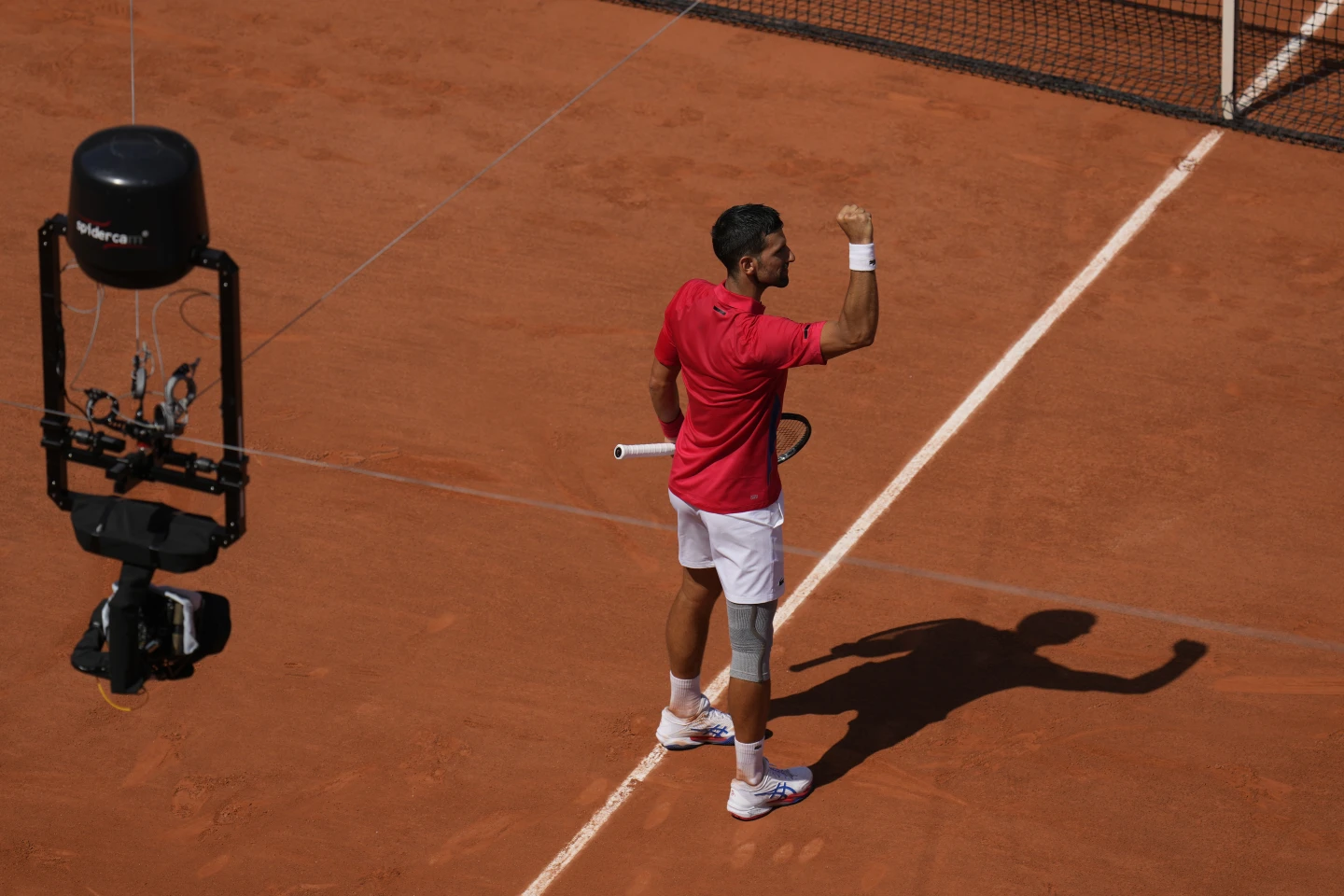
“If I feel that I am not competitive enough to keep going or physically I am not … ready to keep going, I will stop, and I will let you know.”
For the first 1 1/2 hours against Djokovic, it was clear Nadal was not at his best, far from the skilled and relentless player who won a record 14 French Open titles on the same clay courts at Roland Garros hosting the Summer Games.
He recognized this fact after leaving Court Philippe Chatrier, where fans continuously cheered him with chants of “Ra-fa! Ra-fa!”
“Playing against Novak without being able to challenge him and without the stamina of 20 years ago is almost impossible,” said Nadal, who had his right thigh taped for all his matches in Paris.
When asked if this might be the end of their head-to-head matches, Djokovic responded, “Of course it can be, but we don’t know that. It really depends on many different factors.”
“I just hope, for the sake of our rivalry and the sport in general, that we’ll get to play against each other once, maybe a few times, on different surfaces and in different parts of the world, because I feel like it can only benefit the sport.
But I don’t know how he feels physically or what his plans are.”
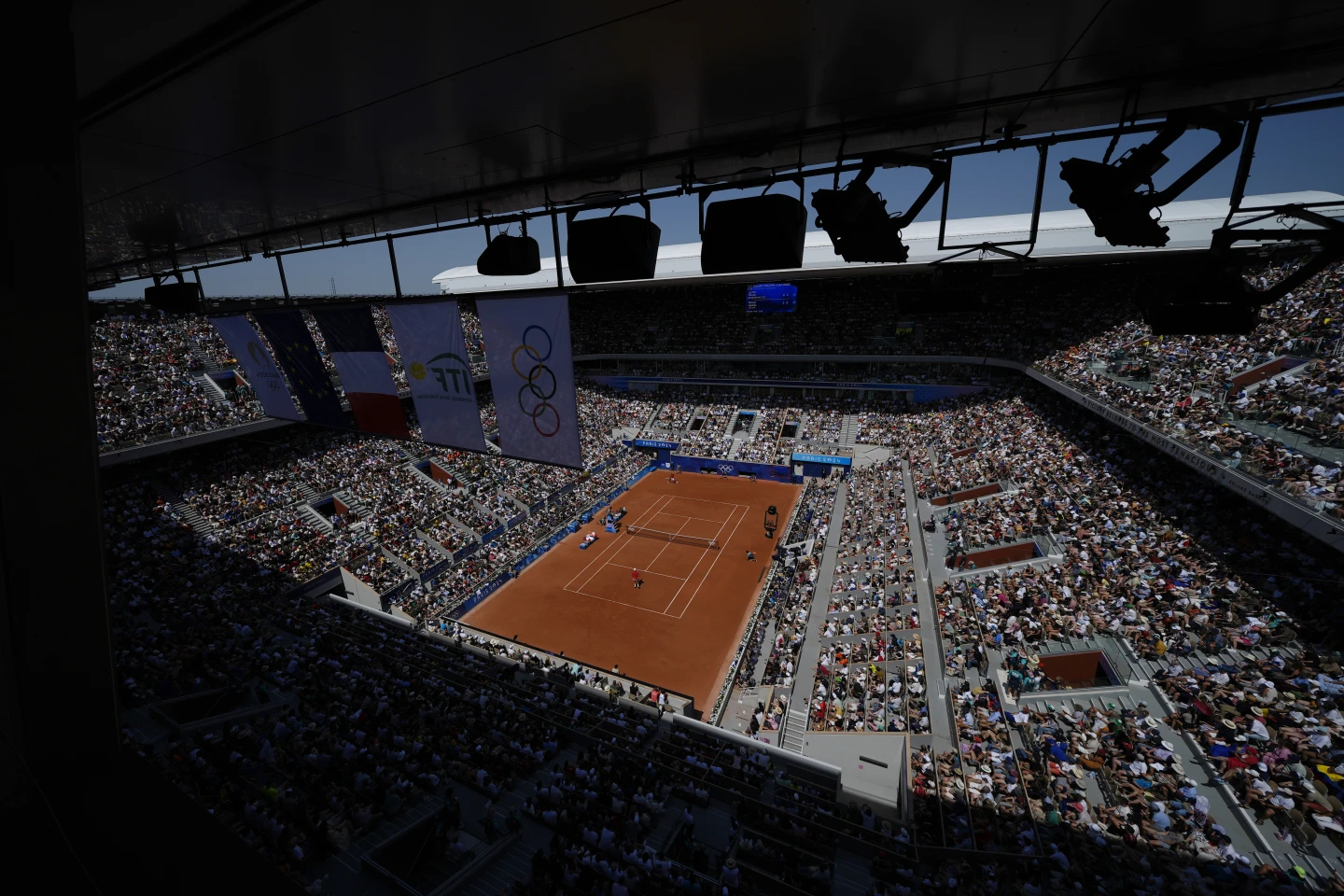
Djokovic has 24 Grand Slam titles, while Nadal has 22, making them the top two in men’s tennis history for the past century. Both have been ranked No. 1, and no pair of men has played each other more often in the professional era.
They are part of the so-called Big Three in men’s tennis, along with Roger Federer, who retired with 20 Slam titles. This trio achieved unprecedented success and sparked endless debates about who is the “GOAT” — “Greatest of All Time.”
Nadal, who has won gold medals in singles and doubles at past Olympics, and Djokovic, who wants to add a gold to his already impressive record, are used to meeting in the later stages of tournaments.
This time, they faced off much earlier because while Djokovic is the top seed at the Olympics, Nadal’s ranking is outside the top 150 due to a lack of matches.
The venue was crowded, from the press seats where people were scrambling for space to the highest areas in the upper deck, for what seemed like a significant event. Rapper Snoop Dogg sat next to tennis legend Billie Jean King, while Vogue editor Anna Wintour was with filmmaker Baz Luhrmann.
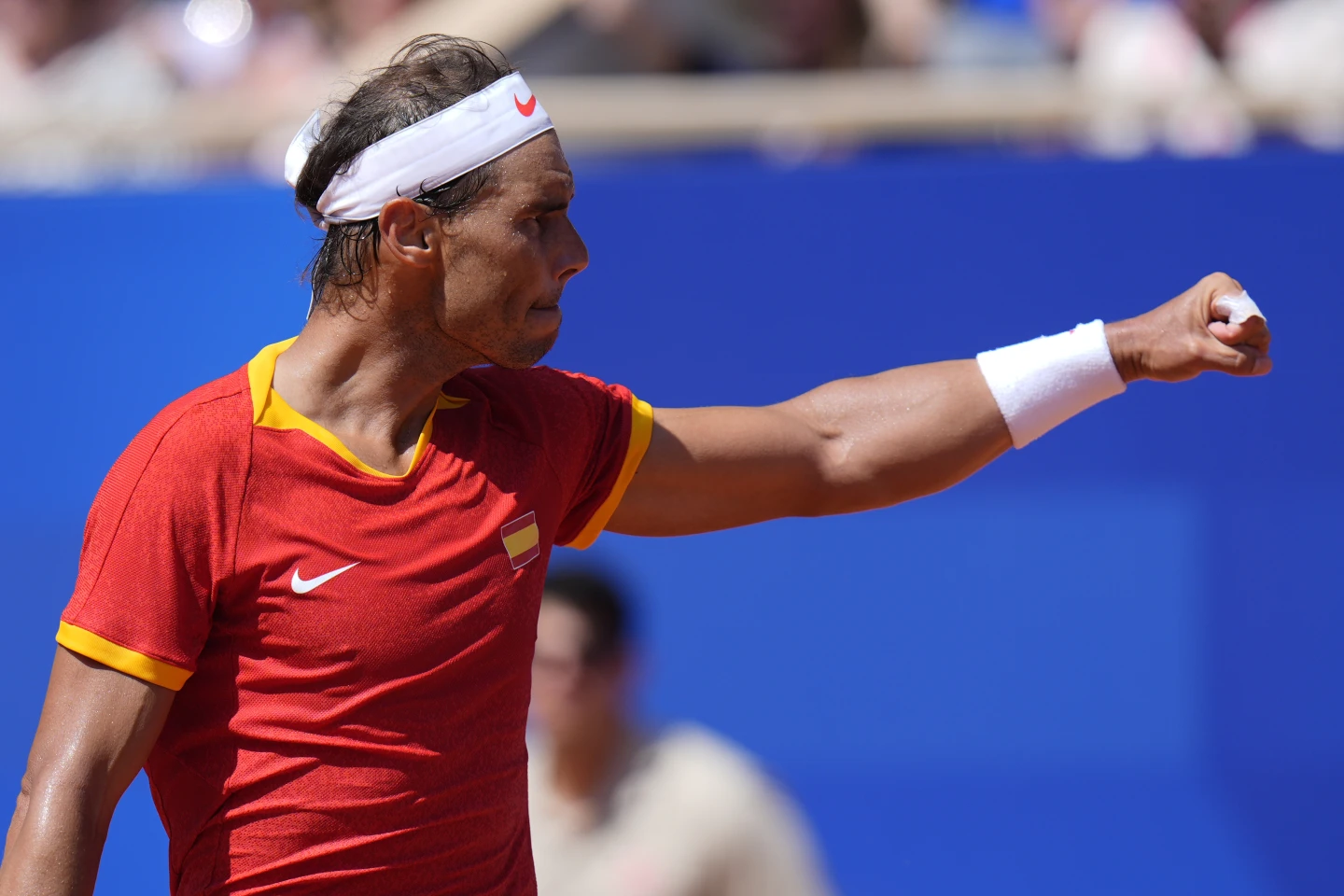
“You could feel the excitement building up for the match, but also an incredible buzz and atmosphere,” Djokovic said. “There was a lot of interest in this match. People wanted to watch it live and on TV as well. I was very proud to be part of it.”
After a dull period, the relentless Nadal finally started playing better, making the match more competitive, which wasn’t surprising to Djokovic.
“If you give him time, he can hurt you. We know that. I’ve experienced it before,” Djokovic said. “I began to hesitate a bit on my shots. He stepped up. The crowd got involved.”
Nadal won four straight games in the second set, including a forehand winner to break and make it 4-all. He raised his left fist, getting cheers from the crowd.
But that’s when Djokovic took back control. He broke Nadal’s serve immediately, then pointed to his left ear as if to taunt Nadal’s fans, and served out the match.
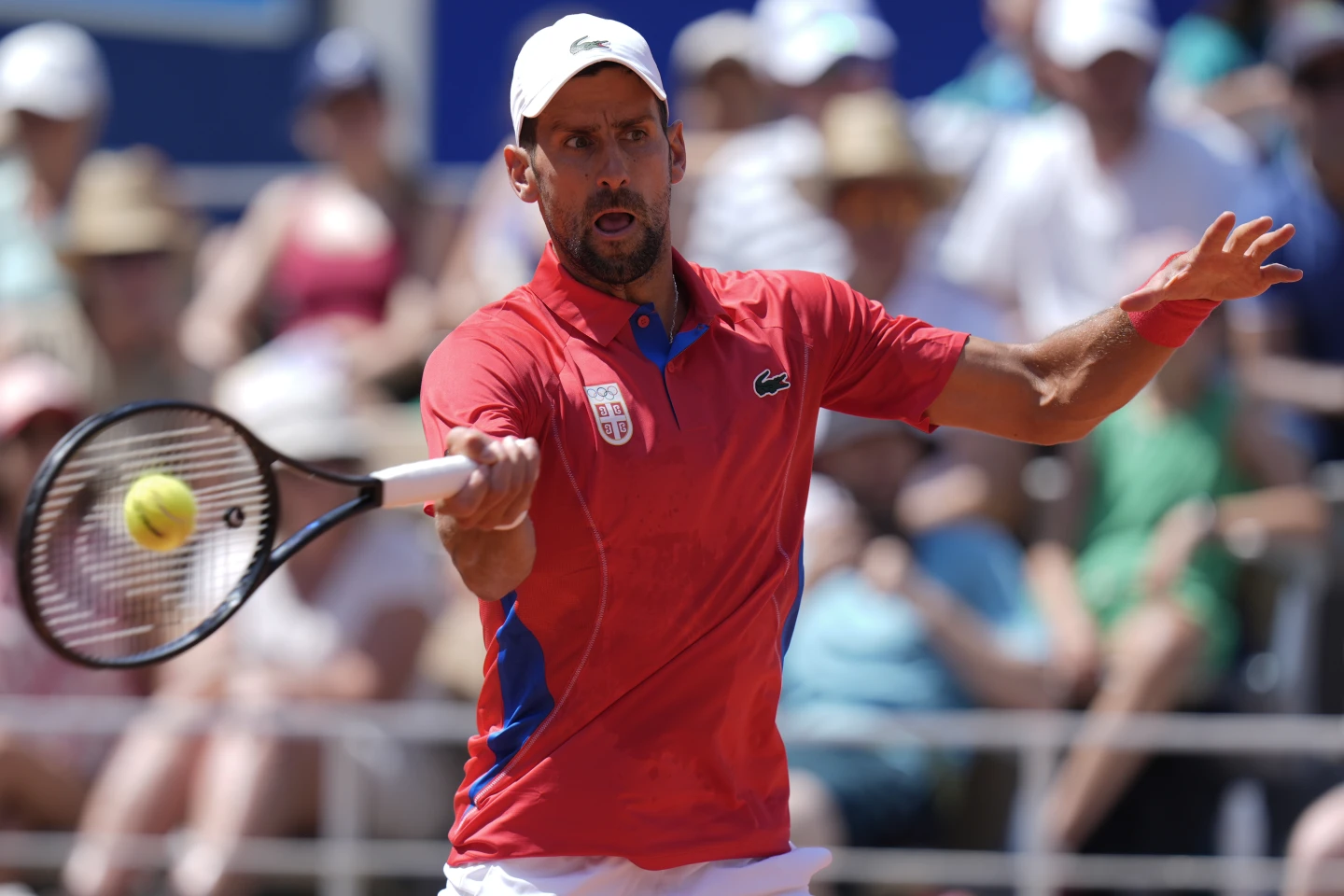
Part of Nadal’s difficulties on Monday were due to not being in perfect shape. Part of the issue was that Djokovic was mostly playing at his best, hitting the ball sharply, placing it accurately, and sometimes using drop shots to set up winners and force Nadal to run a lot.
Djokovic wore a gray sleeve on his right knee, just like he did while reaching the final at Wimbledon three weeks ago. He tore his meniscus during the French Open in early June and had surgery in Paris.
None of that mattered on this warm day under a clear sky, with temperatures in the 80s Fahrenheit. People in the stands waved to fans to stay cool, and both players wore cold white towels around their necks during breaks.
